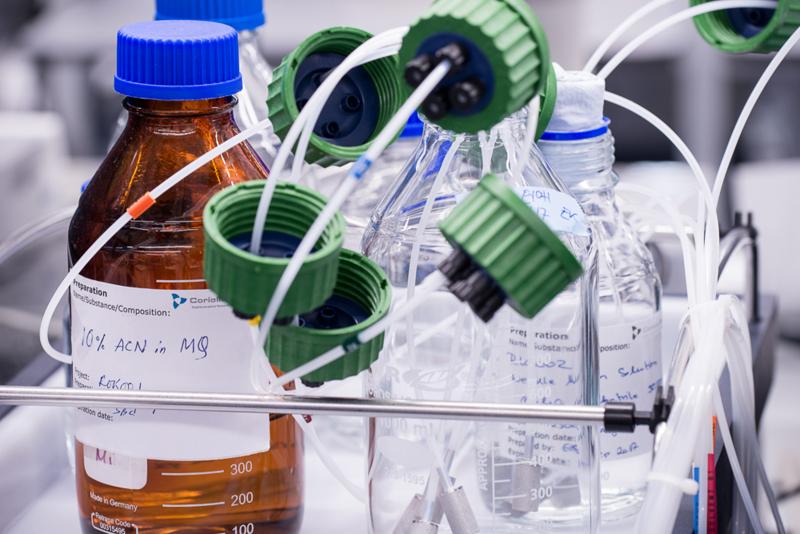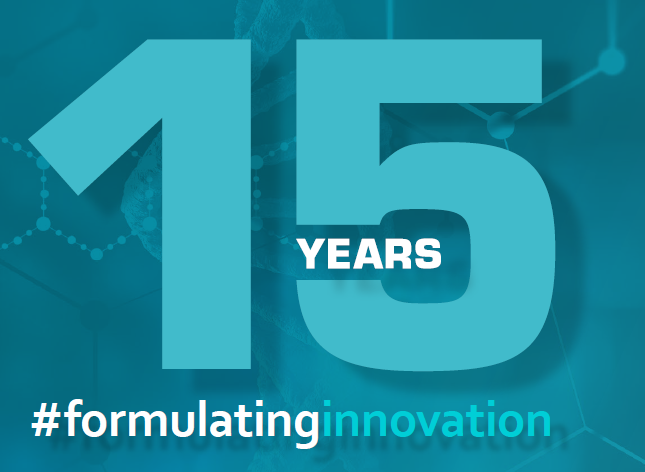Reversed-phase chromatography (RP-HPLC / RP-UPLC)
Reversed-phase chromatography is a commonly used, high-throughput analytical technique that allows the separation of analytes based on differences in hydrophobicity.

We offer, reversed-phase chromatography on high-performance liquid chromatography (HPLC) instruments coupled with UV-, fluorescence-, refractive index- and/or multi-angle laser light scattering (MALLS) detection. Further, ultra-high-performance chromatography (UPLC) instruments with UV detection are available, offering reduced analysis times, requiring lower sample and mobile phase volumes and delivering better resolution. We are experienced in performing reversed-phase chromatography on a large selection of columns from various vendors. With many years of experience in developing reversed-phase chromatography methods, we are happy to apply our know-how during the development of a tailor-made RP method for you. Coriolis is also highly flexible in implementing existing methods from our customers to allow comparability.
Quality & biosafety level of this method
We provide all our analytical services with the highest quality standards. Each project is carried out by experienced scientists and every report or data presentation is comprehensively checked by a scientific reviewer. We offer this technology with the following quality and biosafety level:
Standardized methods or dedicated method development
For common sample types, we can often apply standardized methods with little setup effort. On top of this, our experienced analytical scientists perform in-depth method development or method optimization tailored to your drug substance, product type and development phase. Under GMP, we also offer full method validation or compendial method verification.
Method development
During method development, we tailor sample preparation, method settings, and data analysis to the needs of your project and sample.
For this purpose, we include a representative sample and, where available, suitable reference standards and stressed/degraded materials. This way, our analytical scientists can design a method that is highly suitable for your needs, stability indicating, as well as robust and repeatable. Upon request, we compile a detailed method description for your records.
This can be applied under R&D and GMP. Read more
Method qualification
A method qualification is the initial assessment of the performance of an analytical procedure to show that it is suitable for the intended purpose.
During method qualification, our analytical scientists perform a documented testing that demonstrates that the analytical procedure meets certain acceptance criteria in several categories. These may include repeatability, linearity, intermediate precision, robustness and more. We compile a qualification plan and a qualification report including all relevant data.
This can be applied under R&D and GMP. Read more
Method validation
A method validation is the confirmation under highly controlled conditions that the performance of an analytical procedure is suitable for the intended purpose.
During method validation, our analytical scientists perform a documented testing, which demonstrates that the analytical procedure consistently produces a result that meets the pre-determined acceptance criteria. We compile a validation plan and a validation report including all relevant data.
This can be applied under GMP. Read more
Contact us
Contact us
Do you have any questions? Want to analyze your samples?


